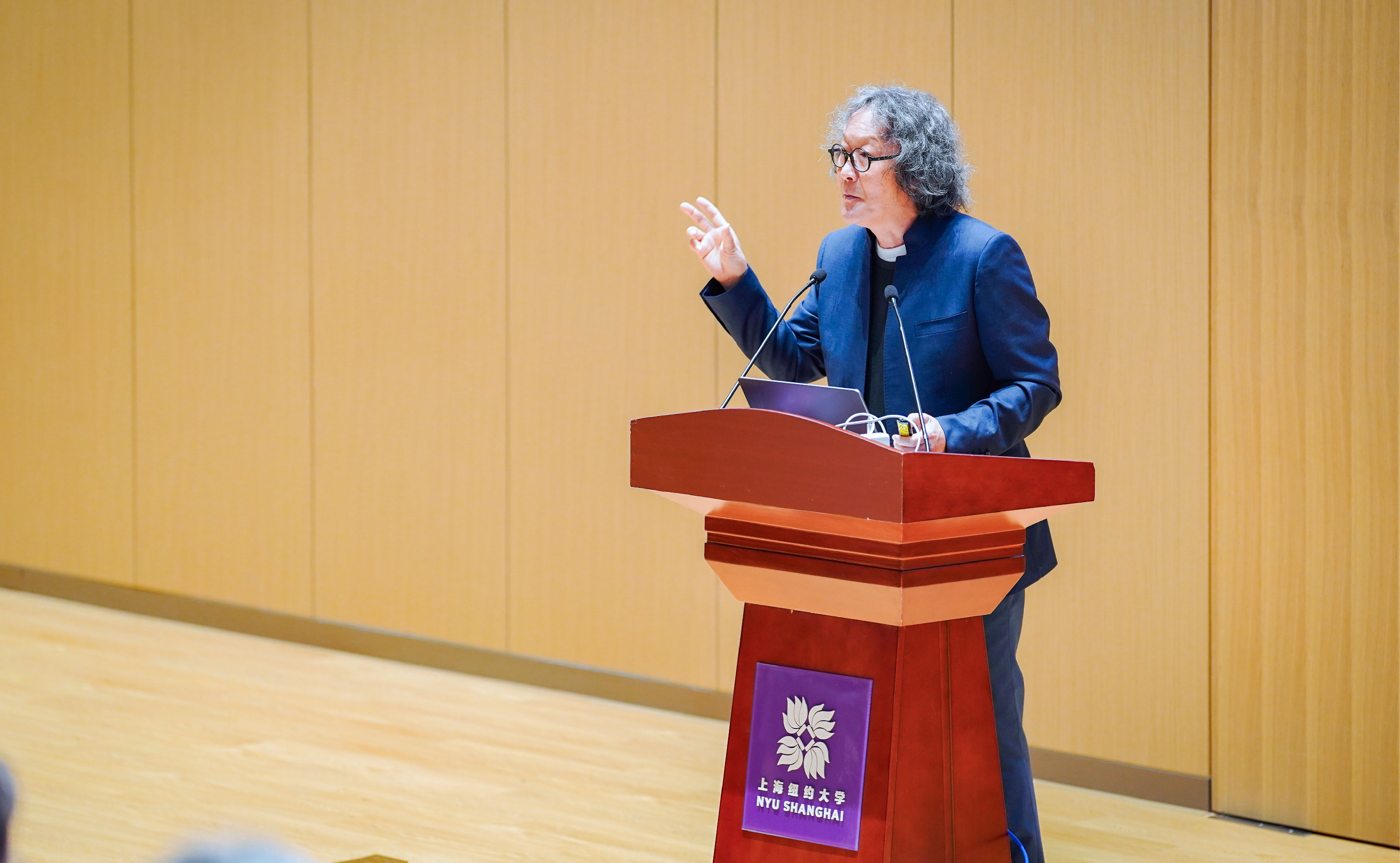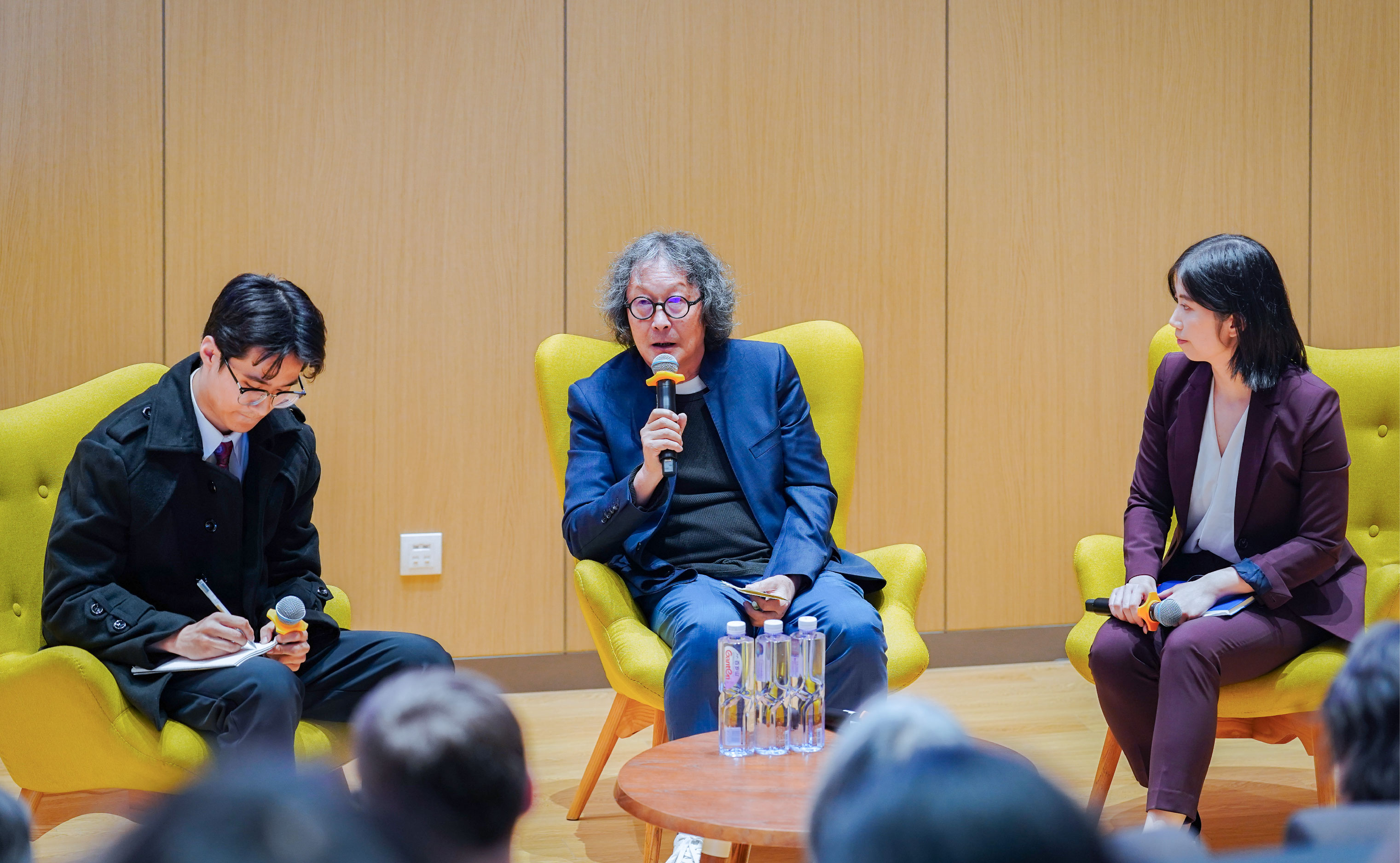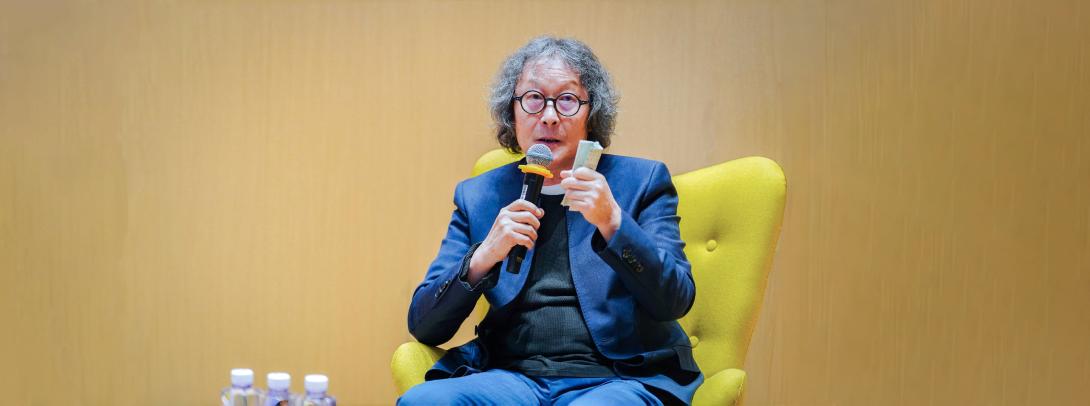On October 21, NYU Shanghai was honored to host renowned Chinese artist Xu Bing for an insightful dialogue. Nearly 600 faculty, students, and art enthusiasts attended the event to hear Xu share his unique artistic vision and thoughts on the relationship between art and AI.
“In many ways, Xu Bing is the very embodiment of much of what NYU Shanghai is and aspires to be,” said Provost Joanna Waley-Cohen at the event. “Xu Bing’s life and career as an artist has spanned both China and the United States. His life and work reflect in many respects, the tumultuous times in which he has lived, refracted through his double identity and double geographic orientations, and especially through the application to his art of an extraordinary degree of innovation and creativity as manifested not least by bringing together in highly novel and thought-provoking ways, what is real and what is not real, truth and fiction, as well as the spiritual and material worlds.”
One of the world’s most important conceptual artists of linguistics and semiotics, Xu was born in Chongqing and grew up in Beijing. He studied printmaking at the Central Academy of Fine Arts, where he became a faculty member after graduation. He garnered international attention for works such as Book from the Sky (Tianshu) (1987–1991). Xu’s works have been shown at prestigious venues and exhibitions around the world. Throughout his career, Xu has been the recipient of numerous awards, including the MacArthur Fellowship, the Fukuoka Asian Cultural Award, and the National Medal of Arts from the US Department of State.
During his talk, Xu discussed both the limitations and possibilities of AI, which has led him to rethink the definition of art. "Besides logic and science, art is another force that drives human civilization moving forward,” he said. “It is an expression of the unknown."

Xu discussed two of his most famous works, Book from the Sky and Book from the Ground (2003). The former is full of invented meaningless Chinese characters, while the latter is composed of signs and emojis commonly used in public places.
"Our knowledge can actually restrict us,” Xu said. “Sometimes, we need to forget what we have learned, discover new space for thoughts, and return to where we started. An artist’s job is to find a medium to explain the unexplainable.”
Xu discussed his recent experimentations with space art. His works, such as the Tianshu Rocket, launched in Jiuquan, Gansu in 2021, and the crater he discovered after the failed launch of his rocket, are evidence of his experimentation of the connections between art and space technology. Xu said, "the crater was completed in 0.3 seconds and is much more beautiful than any other manmade art.”
Xu has also created a stop motion animation in outer space, Satellite Lake: Cosmic Reflections (2021-), and founded the Xu Bing Space Art Residency Project Program (2024-present) inviting artists and the general public to use satellites to create art. "Since I got involved in space technology, I realized that my imagination has been so limited,” he said. “Using satellites to create art could potentially challenge the rigid way of thinking in contemporary art, and thus break current constraints of art."

During a Q&A session, the audience had the opportunity to exchange ideas with Xu. When asked how space art could inspire those who care about the well-being of the earth, Xu said that the satellite used for the Space Art Residency Project Program coincided with the solar maximum period that occurs only every 11 years. This gave an opportunity for space art to interact with the conditions in outer space. “Space art is restricted by greater natural forces,” he said. “Faced with such constraints, what artists can do is to make good use of them, transform them into materials for the creation process, expand ways of thinking, and explore new ways of artistic expression.”
The event was organized by Assistant Arts Professor of Visual Arts Maya Kramer, moderated by Associate Professor of Global China Studies Zou Xin, and translated by Associate Professor of Art History Zuo Lala and Postdoctoral Fellow of Global Asia Li Yutong. Earlier in the day, Xu met with over 30 faculty members and students for an afternoon tea discussion.


